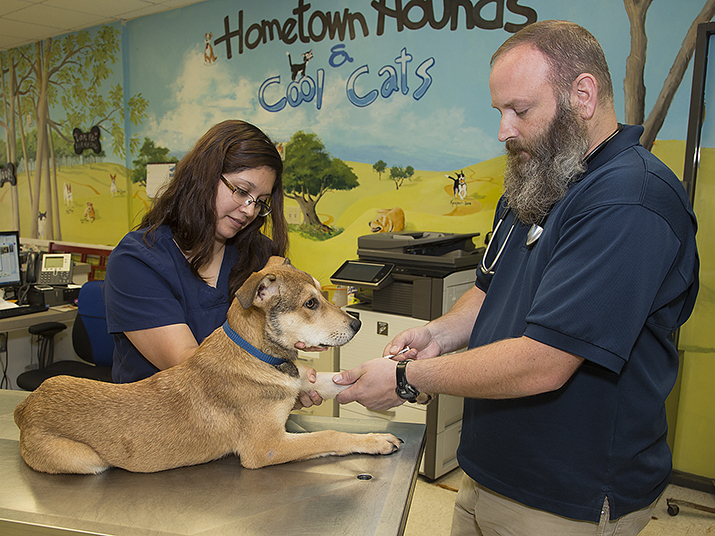- Sections :
- Crime & Public Safety
- Restaurants & Food
- Sports
- More
MCAS urges pet owners to protect pets from mosquito-borne heartworm disease

CONROE, Texas − When it comes to protecting pets from a serious health risk all too common in southeast Texas this time of year, an ounce of prevention truly is worth several pounds of cure.
Area residents understand mosquitoes are a warm weather annoyance, but it's important to understand they are the primary factor in spreading heartworm disease in pets, affecting more than 300,000 dogs and cats annually. It's a dangerous disease showing few, if any, symptoms in its early stages, but left untreated, will grow into a debilitating, deadly disease.
"Heartworm disease is particularly bad in the Gulf Coast region during warm weather months," said Dr. Todd Hayden, director of the Montgomery County Animal Shelter. "Pets spend more time outside and are exposed to higher concentrations of disease spreading mosquitoes."
The disease is spread by infected mosquitoes who transmit heartworm larvae when they bite the pet. There are no immediate signs of an infection until the heartworms mature approximately six months after infection. Once mature, however, heartworms can grow to a foot in length and multiply rapidly.
"Symptoms can include a mild persistent cough, reluctance to exercise, fatigue, decreased appetite and weight loss," said Dr. Hayden. "Untreated, heartworm disease can lead to blockages in the heart or cardiovascular collapse."
Fortunately, pet owners can block heartworm disease before it becomes a problem by regular use of heartworm medication, starting at around eight weeks of age. The annual cost of preventative heartworm medication is around $80 − compared to the treatment costs of x-rays, blood work and arsenic-based injections that can exceed $1,500.
Testing for heartworm infection should be done annually for dogs as part of a routine vet visit to make sure the medication is working.
"While heartworm disease is most common in dogs, it's important to understand it's a danger to cats as well," said Dr. Hayden. "Nearly a quarter of the cats testing positive for heartworms are indoor cats who are bitten by mosquitoes that enter the home."
Treatment of confirmed heartworm disease should be handled by a qualified veterinarian, said Dr. Hayden, because it is both expensive and complex. Exercise should be limited and testing done to determine the exact nature of the infection. While there a limited number of options for the treatment of dogs, there are no approved drug therapies for cats. In many cases the disease can be monitored and controlled, but not eliminated without endangering the life of the pet.
"It's far better to avoid the problem by taking monthly heartworm medication than deal with the effects of the disease," said Dr. Hayden. "If your pet isn't on a regular heartworm medication schedule, now is the time to talk to your veterinarian."
For more information about heartworm disease in dogs and cats, visit www.HeartWormSociety.org. For more information on the Montgomery County Animal Shelter, located at 8535 Highway 242 in Conroe, visit www.mcaspets.org.
















